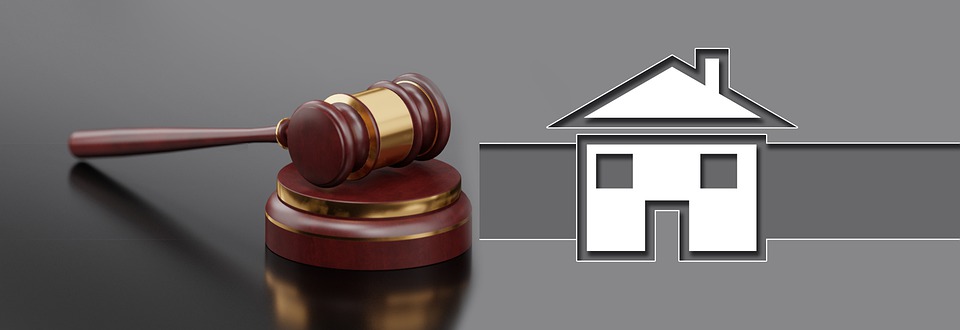12
Lesson 5:
Outcomes
- Explain the role of a housing manager in Indigenous communities.
- Describe effective communication strategies and illustrate responsiveness when addressing tenant inquiries.
- Describe techniques for assessing potential tenants and explain strategies for matching them with suitable properties.
- Explain how to establish and maintain healthy landlord-tenant relationships, while maintaining accurate records of interactions.
The Housing Manager Role
The mission of the Housing Department in Indigenous communities is to provide safe and sustainable housing opportunities, ensuring the preservation and expansion of their residential areas. The department offers various programs, including homeownership opportunities, emergency home repairs, and rental housing options, to support the housing needs of these communities. The goal is to develop high-quality, sustainable housing developments in all Indigenous communities, which fosters a full and rich residential quality of life.

A housing manager oversees all the various duties within the housing department. Some (but not limited to) of the housing programs offered within Indigenous communities are as follows:
Housing Programs (Refer to the communities Current Housing Policy for Terms & Eligibility)
- Home Maintenance – Provides minor repairs to homesites
- Property Management – Exterior lawn management of the property, which includes hazard elimination
- Residential Health & Safety – Designed to provide preventive services to minimize unsafe and unhealthy conditions
- Home Inspections– Will help facilitate annual home inspections to examine the mechanical, structural, electrical and plumbing integrity of the home
- ADA/Special Needs – Provides new or retrofitted accessibility and accommodations for individuals with specials needs
- Relocation Assistance – Provides relocation and temporary shelter due to unsafe living conditions
- Rental Program – Rental opportunities based on needs and on a waiting list
- Home Finance Program – Outside home lenders with competitive interest rates and fees
- Credit Counseling – Can help facilitate resolutions for any inaccurate information on credit report and help find resources for improving financial stability
- Homeowner/Renter’s Insurance – Assist in ensuring policies are obtained by homeowners and renters
Planning & Development Services Offered
- Renovation – Construction or expansion of an existing home to meet the tribal building code
- Rehabilitation – Construction of an existing home to bring the home up to safety, quality, and code standards
- New Construction – Construction of a home at a site where a home did not previously exist
Why are housing managers on Indigenous lands important?
Housing managers are critical members of the community. They are advocates for Indigenous rights and coordinate safe residential necessities for living healthily and safely. Watch the video to learn more about one case of housing needs in Nibinamik First Nation in Ontario, Canada: Could a new approach to First Nations housing be a game-changer?
Communcation with Tenants
Maintaining positive relationships with rental tenants is important for housing managers, and communication plays a crucial role in achieving this. Here are some techniques for avoiding common challenges faced by housing managers in communicating with their tenants and some strategies for improving communication.
- Understanding your tenants
It is important for managers to understand tenants’ needs and communication preferences, provide multiple communication channels, conduct tenant surveys, and have regular check-ins with tenants to tailor communication strategies that meet their needs. - Clear and consistent messaging
Managers should be clear and consistent with their communication. Sometimes visuals and graphics are helpful to supplement written messages or offering translated versions of written materials can help address language barriers. Additionally, ensuring that all messaging aligns with the property’s mission and current policies is important. - Timely and responsive communication
Mangers need to also set clear expectations for response times. Utilizing property management software to automate responses to common inquiries, and addressing tenant concerns and issues promptly can be extremely helpful for this. Some free property management software includes Tenant Cloud and Innago. - Empathy and understanding
Managers should also remember to be actively listening, avoid interrupting tenants, and ask clarifying questions. It is also important to be empathetic and understanding toward tenants’ concerns and situations, which can help strengthen the relationship between the housing manager and tenants.
Saskatchewan Rental Laws

To ensure successful housing in Saskatchewan, managers must be aware of the rights and obligations of both parties under the rental contract. The Residential Tenancies Act of 2006 and the Residential Tenancies Regulations of 2007 highlight these rights and obligations. Understanding these laws can help landlords (owners of the property) avoid issues with tenants and the office of residential tenancies.
Landlord Rights and Responsibilities:
Saskatchewan landlords must follow the law and create clear, detailed lease agreements for both fixed-term and short-term rental contracts. Once signed, no standard condition can be changed or removed without both parties’ agreement.
- The lease agreement should include:
- a copy of Schedule 1 (Schedule 1 SK Document )
- legal names of landlords and tenants;
- rental unit address;
- tenancy agreement date;
- landlord’s (or their agent’s) service address and phone number;
- landlord’s (or their agent’s) emergency phone number;
- tenancy start date;
- type of tenancy (periodic or fixed term);
- if fixed term, the tenancy end date;
- amount of rent payable (if desired, amount of rent per additional approved occupant);
- day in the month which rent is due;
- provision identifying who pays for which utilities;
- provision identifying services and facilities included with the rent; and
- the amount of any security deposit and the date it was or must be paid
Note: (Office of Residential Tenancies)
Saskatchewan landlords may use a month-to-month, week-to-week, or fixed-term lease. Tenants must pay a security deposit equivalent to one month’s rent, which the landlord must store in a trust account and return within seven days after the tenant moves out. The landlord can also charge a pet deposit and key deposit.
Landlords also have the right to impose reasonable rules, enter the rental property, increase rent with 12 months’ notice, and charge late fees if included in the lease agreement. They must ensure that all terms adhere to the Residential Tenancies Act.
Watch this video on Saskatchewan Tenancy Agreements: Tenancy Agreements (English) – YouTube
Tenant Rights and Responsibilities:
Tenants have the right to live in a habitable rental property, access their units without restrictions, and display election advertising during the election period. They must ensure that they pay rent on time, report maintenance issues, keep the rental property clean, and notify the landlord when they are moving out. Additionally, tenants have the responsibility to pay rent on time and abide by their signed contract/lease agreement.
Note: (Saskatchewan Rental Laws: The Ultimate Guide to the landlord tenant act)
Strategies for Housing Managers
Housing managers represent the landlord/owner of the properties available on Indigenous land. They’re responsible for establishing the ground rules for renting a house in the community. To maintain the seamless operation of a property, housing managers are tasked with a range of responsibilities that include addressing tenant concerns and negotiating contracts for upkeep and sanitation services.
Selecting a suitable tenant for the properties managed by housing managers can be a challenging task. Therefore, it’s crucial to have certain criteria in place to determine what qualifies as a good tenant. Here are some guidelines for assisting in choosing a good tenant.
TIP: Here is a short video with two ways to do a quick background check on your tenants: Two EASY ways to run a tenant background check in Canada
Journal Question
Using the forum labelled “Course 1: Chapter 2” make a journal entry responding to the prompt below. Ensure that you title the entry “Lesson 5”. After writing a journal entry, go and make a comment on two other posts from your classmates. It can be about anything you noticed, liked, agreed with etc. The idea is to continue the dialogue about the topic.
Prompt: How can understanding the Saskatchewan Rental Laws help housing managers in managing rental properties in the area? What are the important things that housing managers should consider when creating lease agreements and managing tenant-landlord relationships?
*View the journal entry and journal comment rubric to see how they will be marked
Works Cited:
Housing Department. Semtribe. (n.d.). Retrieved March 19, 2023, from https://www.semtribe.com/stof/services/housing-department
YouTube. (2017). YouTube. Retrieved March 19, 2023, from https://www.youtube.com/watch?v=UpRyv5VzmjA.
Hayes, M. (2023, January 26). 5 best free property management software. Fundera. Retrieved March 19, 2023, from https://www.fundera.com/blog/free-property-management-software
How to communicate with tenants effectively. How to Communicate with Tenants Effectively. (2023, April 3). Retrieved March 19, 2023, from https://www.doorloop.com/hub/tenant-communication-101
7 property management tips and tricks for Success. Service Master Clean. (n.d.). Retrieved march 19, 2023, from https://www.servicemasterclean.com/clean-blog/janitorial/7-property-management-tips-tricks-for-success/
Office of Residential Tenancies. Government of Saskatchewan. (n.d.). Retrieved March 19, 2023, from https://www.saskatchewan.ca/residents/housing-and-renting/renting-and-leasing/tenancy-agreements
YouTube. (2022). YouTube. Retrieved March 20, 2023, from https://www.youtube.com/watch?v=cBJ6Q5QL-AI.
